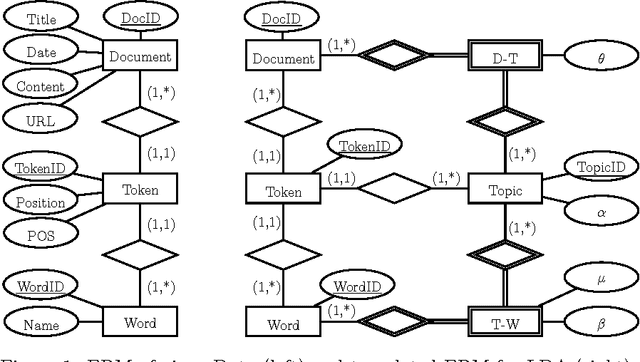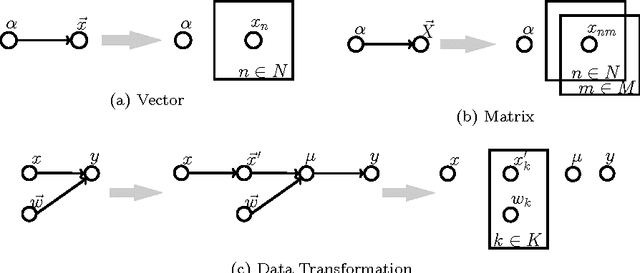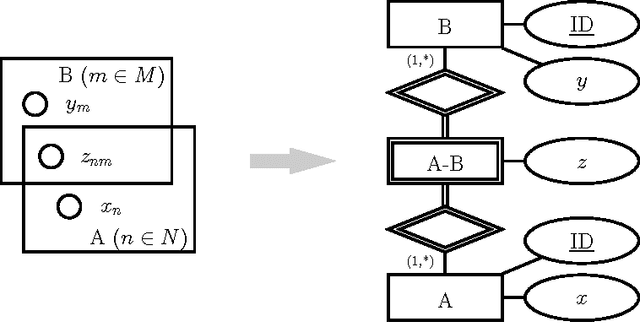Frank Rosner
Translating Bayesian Networks into Entity Relationship Models, Extended Version
Jul 08, 2016



Abstract:Big data analytics applications drive the convergence of data management and machine learning. But there is no conceptual language available that is spoken in both worlds. The main contribution of the paper is a method to translate Bayesian networks, a main conceptual language for probabilistic graphical models, into usable entity relationship models. The transformed representation of a Bayesian network leaves out mathematical details about probabilistic relationships but unfolds all information relevant for data management tasks. As a real world example, we present the TopicExplorer system that uses Bayesian topic models as a core component in an interactive, database-supported web application. Last, we sketch a conceptual framework that eases machine learning specific development tasks while building big data analytics applications.
Evaluating topic coherence measures
Mar 25, 2014

Abstract:Topic models extract representative word sets - called topics - from word counts in documents without requiring any semantic annotations. Topics are not guaranteed to be well interpretable, therefore, coherence measures have been proposed to distinguish between good and bad topics. Studies of topic coherence so far are limited to measures that score pairs of individual words. For the first time, we include coherence measures from scientific philosophy that score pairs of more complex word subsets and apply them to topic scoring.
 Add to Chrome
Add to Chrome Add to Firefox
Add to Firefox Add to Edge
Add to Edge